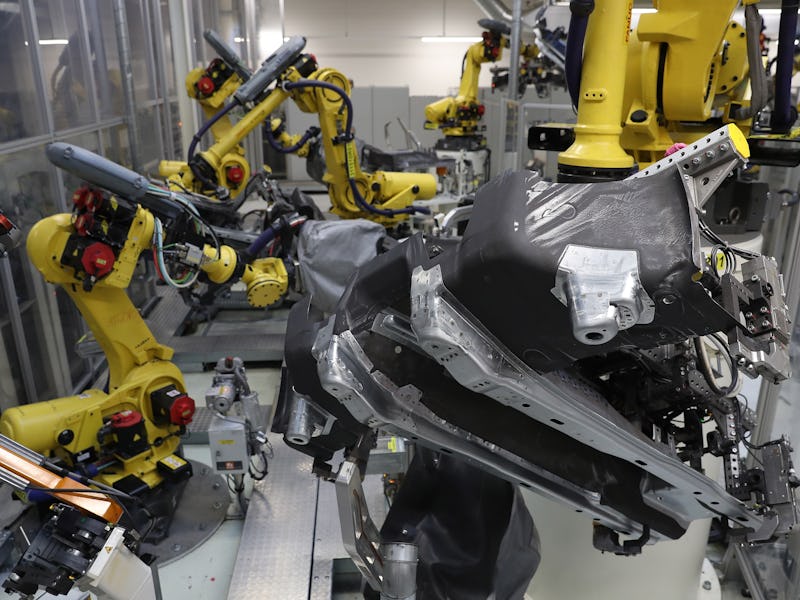A.I. Will Re-Start the Profitability Explosion
If the West is in economic decline, new research says A.I. could come to the rescue.

Over the past few decades, technology has dramatically increased the productivity of the average worker, and through them, the profitability of the average large business. It’s a trend that has payed enormous dividends for those companies that have been able to adapt, but in the past couple of years the trend seems to have slowed, and corporate profits have stagnated.
Industry researchers from Accenture Research and Frontier Economics recently forecasted a dramatic return to growth in corporate productivity and profit.
Called How A.I. Boosts Industry Profits and Innovation, their report foresees a number of improvements to profitability, thanks to A.I. moving into the workplace.
The most dramatic predictions of the bunch have to do with overall growth in the economy. By 2035, A.I. solutions will have increased industrial productivity in fully adapted industries by 40 percent, and increased the overall growth rate in 16 of the biggest industries by 1.7 percent. That could produce an overall increase in profitability of 38 percent across those same industries, and a rough estimate of 4.6 percent growth rate for the U.S. gross domestic product. If those predictions come true, it would affect the U.S. economy more positively than any year since 2003.
The industries that will see the biggest gains include healthcare (seventh-biggest increase in profitability), wholesale and retail (fourth-biggest), and manufacturing (second-biggest). The biggest gains should come from “information and communication,” which is likely due to the rise of truly useful chat bots (see: Facebook Messenger) and automated phone support systems allowing the outsourcing phenomenon to become a downsizing phenomenon.
The report also tries to map out some of the more cultural changes that will go on within corporations that choose to embrace A.I. to a great extent. The integration of human resources (HR) and A.I. maintenance into one big “H.A.I.R.” department seems… unlikely. On the other hand, the report notes that, “Human concerns over the impact of A.I. on job security, wages and privacy can also affect the attitudes of employees and how they embrace A.I. in their work. Leaders have a responsibility to explain the risks and opportunities that a hybrid workforce brings.”
Those opportunities, for workers who do survive the A.I.-driven cull, include allowing them to increase their own productivity enough that they still make sense to employ. By offloading their most arduous or unnecessarily labor-intensive tasks to A.I., they can focus more on the main tasks that actually require their human-level intelligence. But how will each human being’s productivity be rated, if A.I. is responsible for a lot of what they actually produce? Will the best workers be those who work the hardest, or those who have the best ability to orchestrate a suite of A.I. to effectively do their job for them?
Near the end, the report even predicts that industry report-writers could be in danger of having their analysis jobs outsources or augmented by A.I. — “Perhaps A.I. itself will be employed to calculate more accurate predictions across time horizons.”
It seems that A.I. is destined to have a huge positive impact on the economy, but even the experts don’t know how that impact will shake out over the economy as a whole. Some economists believe it will be the final jobocalypse, others think it will just be a particularly tough period of adjustment.
Millennials and other technologically saturated peoples will likely fare the best. On the other hand, we should all fear for the anyone we know who’s currently over the age of 45, and who might still want or need to work a decade or more in the future.